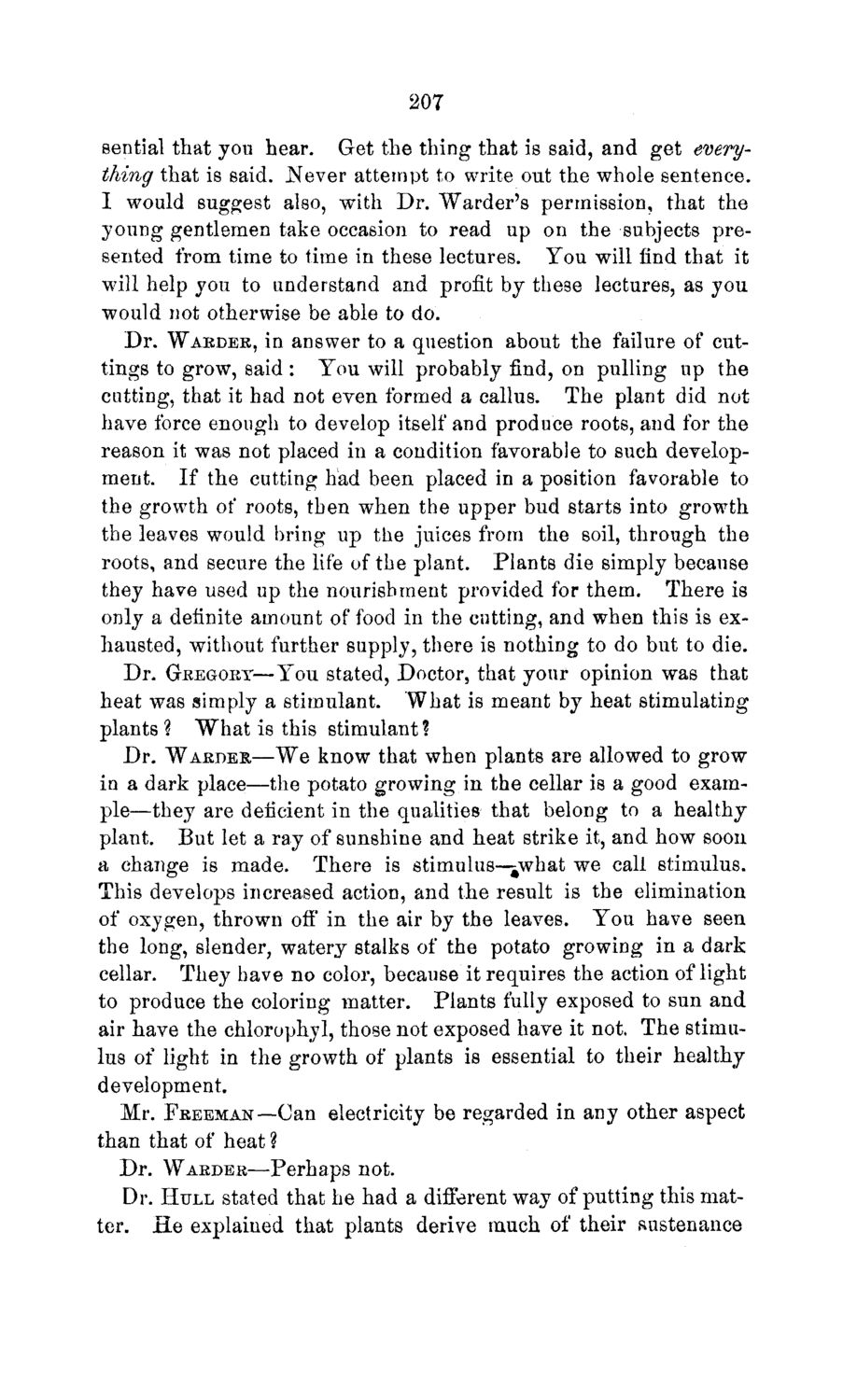| |
| |
Caption: Board of Trustees Minutes - 1869
This is a reduced-resolution page image for fast online browsing.

EXTRACTED TEXT FROM PAGE:
207 sential that you hear. Get the thing that is said, and get everything that is said. Never attempt to write out the whole sentence. I would suggest also, with Dr. Warder's permission, that the young gentlemen take occasion to read up on the subjects presented from time to time in these lectures. You will find that it will help you to understand and profit by these lectures, as you would not otherwise be able to do. Dr. WARDER, in answer to a question about the failure of cuttings to grow, said : Tou will probably find, on pulling up the cutting, that it had not even formed a callus. The plant did not have force enough to develop itself and produce roots, and for the reason it was not placed in a condition favorable to such development. If the cutting had been placed in a position favorable to the growth of roots, then when the upper bud starts into growth the leaves would bring up the juices from the soil, through the roots, and secure the life of the plant. Plants die simply because they have used up the nourishment provided for them. There is only a definite amount of food in the cutting, and when this is exhausted, without further supply, there is nothing to do but to die. Dr. GREGORY—You stated, Doctor, that your opinion was that heat was simply a stimulant. What is meant by heat stimulating plants ? "What is this stimulant? Dr. WARDEJL—We know that when plants are allowed to grow in a dark place—the potato growing in the cellar is a good example—they are deficient in the qualities that belong to a healthy plant. But let a ray of sunshine and heat strike it, and how soon a change is made. There is stimulus—^wh at we call stimulus. This develops increased action, and the result is the elimination of oxygen, thrown oft* in the air by the leaves. You have seen the long, slender, watery stalks of the potato growing in a dark cellar. They have no color, because it requires the action of light to produce the coloring matter. Plants fully exposed to sun and air have the chlorophyl, those not exposed have it not. The stimulus of light in the growth of plants is essential to their healthy development. Mr. FREEMAN—Can electricity be regarded in any other aspect than that of heat ? Dr. WARDER—Perhaps not. Dr. HULL stated that he had a different way of putting this matter. He explained that plants derive much of their sustenance
| |